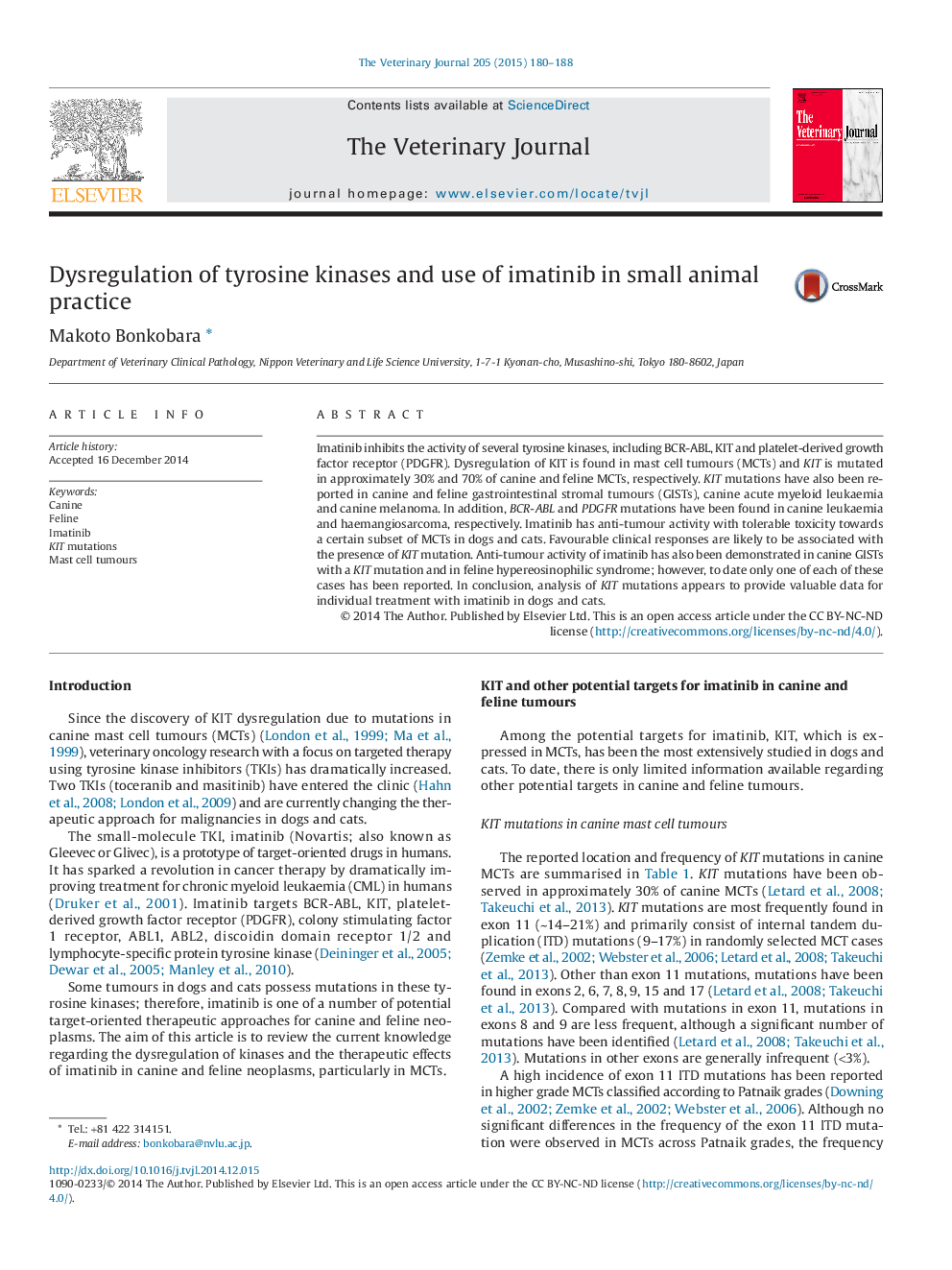| Article ID | Journal | Published Year | Pages | File Type |
|---|---|---|---|---|
| 5797468 | The Veterinary Journal | 2015 | 9 Pages |
â¢Imatinib is a molecular targeted drug that inhibits the activity of some tyrosine kinases including KIT.â¢Dysregulation of kinases due to their mutation is found in some tumours in dogs and cats.â¢In particular, dysregulation of KIT is found in canine and feline mast cell tumours.â¢Imatinib has therapeutic activity towards a certain subset of canine and feline mast cell tumours.â¢This activity is likely to be associated with the presence of KIT mutations.â¢It would be beneficial to individualise imatinib treatment according to the mutational status of KIT.
Imatinib inhibits the activity of several tyrosine kinases, including BCR-ABL, KIT and platelet-derived growth factor receptor (PDGFR). Dysregulation of KIT is found in mast cell tumours (MCTs) and KIT is mutated in approximately 30% and 70% of canine and feline MCTs, respectively. KIT mutations have also been reported in canine and feline gastrointestinal stromal tumours (GISTs), canine acute myeloid leukaemia and canine melanoma. In addition, BCR-ABL and PDGFR mutations have been found in canine leukaemia and haemangiosarcoma, respectively. Imatinib has anti-tumour activity with tolerable toxicity towards a certain subset of MCTs in dogs and cats. Favourable clinical responses are likely to be associated with the presence of KIT mutation. Anti-tumour activity of imatinib has also been demonstrated in canine GISTs with a KIT mutation and in feline hypereosinophilic syndrome; however, to date only one of each of these cases has been reported. In conclusion, analysis of KIT mutations appears to provide valuable data for individual treatment with imatinib in dogs and cats.
